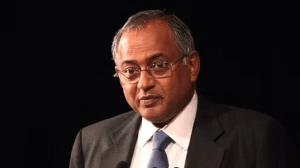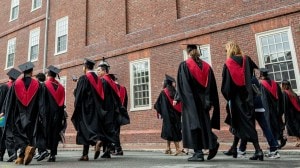Predicting the recovery of discretionary spending in IT services is challenging due to the current global economic slowdown, Kris Gopalakrishnan, co-founder of Infosys and president of the Infosys Science Foundation, told FE. He emphasised that IT services are closely tied to the global economy, making them susceptible to economic cycles and the further the integration of generative AI (GenAI) is transforming service offerings, complicating recovery forecasts.
“When the global economy is going through a slowdown, the immediate reflection will be in IT industry because that’s true reflection of the global economy because the customers see a slowdown and hence this industry will see a slowdown,” Gopalakrishnan said. “Second, you know, the impact of Gen AI is also felt on many of the tasks that are part of the services that these companies offer. For example, problem resolution, managing computer centres, data centres, BPO,” he added.
Additionally, Gopalakrishnan said that businesses are cautious about adopting GenAI due to concerns about accuracy and implementation. However, consumers are more readily embracing the technology. He observed that consumers are experimenting with real-time translation and other applications.
Despite these challenges, Gopalakrishnan remains optimistic about the future. He pointed out that IT spending generally grows 2-3% higher than the global GDP growth, suggesting a rebound as the global economy improves.
“These are cycles. When do you see it recovering is difficult to answer. But it will recover, that I can say for sure because we have seen these cycles before,” Gopalakrishnan stated. “I am very confident about the Indian IT services industry because they are leaders, with the ability to retrain their workforce and relook at their portfolio of services,” he added.
Infosys prize
Gopalakrishnan was speaking on the sidelines of the press briefing hosted by the Infosys Science Foundation (ISF) to announce Infosys Prize transitioning from a mid-career prize to an early-career prize by lowering the upper age limit for prize winners to 40 years from 50.
“Since its inception 15 years ago, ISF has recognized and awarded 92 brilliant minds across disciplines in a demanding global environment. This change in the direction of the Infosys Prize stems from our vision to create a generation of young academicians who are passionate about pursuing a career in scientific research,” Gopalakrishnan said.
Winners based outside India are now required to spend time at Indian institutes to foster collaboration and build networks. The categories of the prize have been slightly adjusted, with Economics now being recognized as a separate category. From 2024, the six categories will be Economics, Engineering & Computer Science, Humanities & Social Sciences, Life Sciences, Mathematical Sciences, and Physical Sciences.
The Infosys Prize, established to promote world-class research from India, consists of a gold medal, a citation, and a purse of $100,000. Beyond awarding the prize, the ISF engages in various science promotional activities, including lectures by laureates and jury members, supporting science-related events, and other initiatives to promote research excellence.
Further, IT industry veterans N R Narayana Murthy and along with Gopalakrishnan said there is a need to increase funding for research and higher academic institutes in the country by both the private and public sector.
“Look at US universities MIT, Harvard, Stanford, etc, they get endowments worth billions of dollars, so I hope that our alumni will contribute more to our institutions,” Gopalakrishnan said.
Adding to it, Murthy said, there is a need to change some regulations. For example, even today an entrepreneur cannot donate shares to academic or research institutions. “Young entrepreneur will not have much money, but they can give shares. Once the company achieves certain growth they will get a dividend, which will itself be very significant and they will keep multiplying value.” Murthy said.
He also mentioned that in the late 1990s, he had offered some Infosys shares to IIT Kanpur. “If they had accepted, the shares would have grown in value by over 700% today,” Murthy said.










